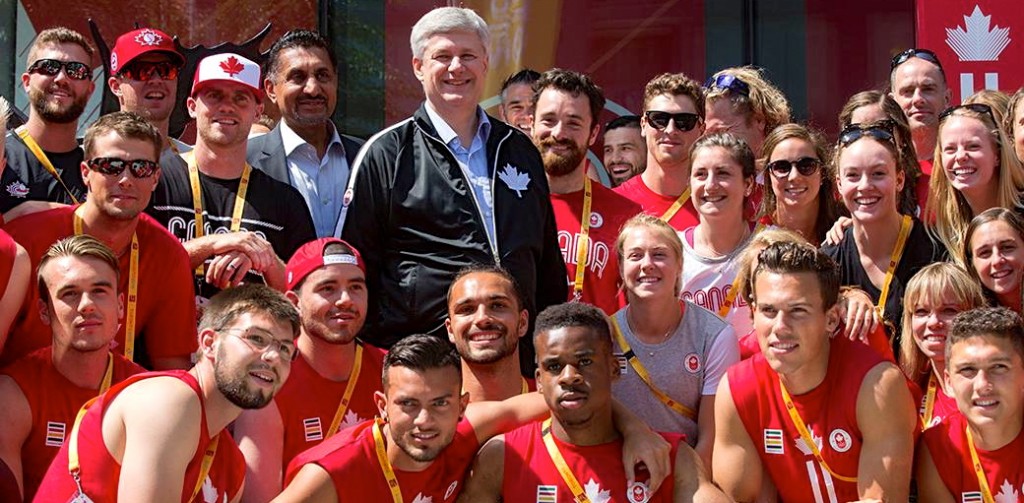EspañolThe advertisement produces such positive emotion and evokes sentiments of pride, inclusion, and patriotism. It also represents a cultural paradigm the government of Canada no longer supports.
The scene is an indiscernible Canadian city. Strangers work together to open a locked refrigerator full of beer. The catch? It will only open after a certain utterance has been said in six different languages.
The phrase that unlocks it all? “I am Canadian.”
The advert, which Canadian-founded beer company Molson Coors released in the days leading up to Canada Day, begins with a simple question: what makes someone Canadian? For the demographics represented in the remainder of the segment and many more across the nation, the answer is no longer simple.
Canada Day, on July 1, has always celebrated the creation of the nation, on that same day in 1867. It is also a celebration of values, opportunities, and freedoms not found in many other locations. Unfortunately, the Canadian government has recently downgraded those sentiments from givens to questionable.
The Molson commercial embodies what most picture the country to be, and what many Canadians feel it still is: a beacon for diversity. What is really represents, however, is a Canada we have strayed from, and one we ought to return to.
Canada’s history, not so dissimilar to many nations, is one of discrimination, xenophobia, and a not-so-removed extension from Anglo, white-speak Great Britain. One not need look back that far to find impactful examples.
The Chinese Immigration Act, which banned most forms of Chinese immigration beginning in 1923; Japanese Internment, which saw the detainment of Japanese-Canadians during World War II; and “none is too many,” a now infamous phrase that denotes the government’s policy toward Jewish refugees during World War II — three of the most egregious, racist actions in our county’s past. The latter two were made out of fear, during war time.
Similarly, and eerily, Bill C-24 — which has created second-class citizens by allowing for citizenship revocation for the first time in our country’s history — was passed last month with comparable precursors. The discernible difference between Canada now and then is that the current version publicly purports to be an inclusive, receptive nation. Her government’s actions say the opposite.
In 2006, current Canadian Prime Minister Stephen Harper issued a long overdue apology to Chinese-Canadians in the House of Commons for the over six decades of what he called malicious measures Canada put forth towards them. “This was a grave injustice,” he confessed at the time. “We have the collective responsibility to build a country based firmly on the notion of equality of opportunity, regardless of one’s race or ethnic origin.”
Who will apologize for Bill C-24, and to all those it impacts, in the years to come?

“Western culture is not a culture of compassion. It is a culture of teaching people to aim for individual success,” Jean Vanier, recently lamented to the Huffington Post regarding the shunting of minority groups. The Canadian author, humanitarian, and founder of L’Arche charity said “everybody is encouraged to go up the ladder, to win, to make more money.”
Except the Harper government has created first- and second-class ladders, and they head in very different directions. The direction the prime minister is leading the country in now is severely segregating: discrimination to rebuff citizenship is one thing; discrimination to revoke it is a different subject entirely.
Many claim the bill is tolerable because it only punishes the horrible, the traitor. They are wrong.

More details of the new law can be read here, but the three areas that carry the threat of citizenship revocation include treason, espionage, and terrorism. Independent of insulting, demeaning, and relegating current Canadians to second class — violating a fundamental right this country has stood for for decades — the reliance on the ambiguity and inner-workings of foreign courts and judicial systems is lamentable.
Omar Khadr, the Toronto native and infamous child soldier who killed US Sergeant Christopher Speer in Afghanistan in 2002 as a 15-year-old, is the poster-child for the new law. Due to loopholes in Egyptian law, Khadr, whose father was Egyptian, could be stripped of his Canadian citizenship even though he has never stepped foot in Egypt. Is Khadr a hero? Certainly not. Is he Canadian? Yes.
Less straight forward and even more troubling is the case of Canadian journalist Mohamed Fahmy. The naturalized Canadian citizen, award-winning journalist, and former bureau chief for Al Jazeera English in Egypt was convicted along, with two non-Canadian colleagues, by an Egyptian court on terrorism charges in 2013, in a trial that has been internationally decreed a sham. Now in the midst of a retrial, the conservative government has stated they would not invoke the law in his case. However, having it exist as consideration both provides worry and reveals the possibilities for an abuse of power by the state.
Canada’s cultural pedigree has been popped; what we believe Canadianism to be in terms of inclusiveness no longer aligns with those who govern. Bill C-24 is more akin to a racially-hierarchical 1923 Canada, not one of 2015.
For Canada Day, Molson asked what makes someone Canadian. As we move forward as a society, we must ask ourselves each and every day a much more important question: what kind of nation do we want to be? One like our history suggests, or the one which we believe we already are? There is, and should always be, only one type of Canadian citizen.
 Versión Español
Versión Español












